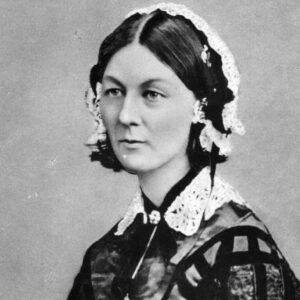By Rose O. Sherman, EdD, RN, NEA-BC, FAAN
I always recommend that nurse leaders remain curious when they hear things from their staff that conflict with their worldview. In a recent workshop, I asked for examples of conversations leaders had with their younger staff that surprised them. One nurse leader shared the following story:
I am huge on nursing history. I even dressed up like Florence Nightingale on her May 12th birthday to celebrate our nursing roots. So you can imagine my shock when I talked about our nursing week plans with my staff of primarily twenty-somethings. When I shared my tradition, they looked at me very skeptically. Finally, one of my young nurses told me they are “so over Flo.” They shared that their perspective of Florence Nightingale differed significantly from mine. Instead of seeing her as a heroine of nursing practice, they told me that they felt old Flo is responsible for many of the issues we have in nursing today. Their view was that she was sexist (no men should be in nursing) and also somewhat racist. Far from elevating the profession, she portrayed nursing as a low-paying and subservient calling. They even shared some TikTok videos and other websites to illustrate their point. They pointed out to me that countries like New Zealand and Australia no longer celebrate her legacy because of her attitudes toward indigenous people. Rather than looking at Nightingale through a historical lens, they judged her by today’s standards. I also learned through my discussions with these nurses that Florence Nightingale receives very little attention today in nursing curricula, and some told me that she was never discussed in their nursing programs. I was unsure how to proceed, but I decided that the usual birthday celebration was not the right approach. I needed to learn more about celebrating them and nursing as it is today in a meaningful way.
As I thought about what this nurse leader shared, I was reminded of points that Dr. Jean Twenge makes in her work, Generations. She notes, “The breakneck speed of cultural change means that growing up today is a completely different experience from growing up in the 1950s, 1980s, or even the 2000s. These changes have an impact. The era in which you were born substantially influences your behaviors, attitudes, values, and personality traits. When you are born has more of an impact on your personality and attitudes than the family that raised you. Generational change is not just about individual people changing – it is about shifting cultural norms.”
Frontline nurse leaders are witnessing these shifts in real time with their staff. Viewpoints about nursing and work in general are shifting. Fewer younger staff today talk about nursing as a passion or calling. They see it more as a career option that they may either grow to love or leave to do something else. These viewpoints have developed from growing up in a turbulent and unpredictable world where individualism has firmly taken root. Rather than reject or criticize this new way of viewing the profession, we must try to understand it to link the old with the new.
Read to Lead
Twenge, J.M. (2023). Generations. New York: Imprint Press.
© emergingrnleader.com 2025
Our Most Popular Right Now The New World of Work Workshop
Two Brand New Workshops for Your Team in 2025
*** Trending – Building Bridges Not Walls: Leading Multigenerational Work Teams – Click Here for More Information Building Bridges Not Walls
Nurse and Nurse Leader Work-Life Balance and Well-Being: Nursing Leadership Strategies for Success – Click Here for More Information WorkLife Balance and Wellbeing WS
New Book – Click Here to Buy




 LinkedIn
LinkedIn Instagram
Instagram